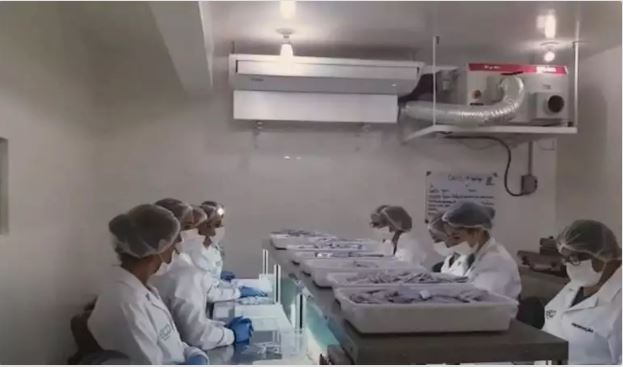By: Deepak Pahwa, Managing Director, Bry-Air | TOI Blog | Tuesday, 20 October 2020
What is your biggest worry when you go out to buy groceries wearing your latex gloves with a mask on trying to avoid any possible contact with any surface or any person? It is that your gloves should not have any cracks or should be leakproof. There is a whole science behind harboring the excellent properties of the natural rubber elastomer and use them to make products like gloves and condoms. Natural latex rubber deteriorates due to exposure to oxygen, ozone, heat, humidity, ultraviolet and visible light, mechanical fatigue or heavy metal contamination. Therefore, environment control plays a vital role during the vulcanization of rubber products. Humidity-controlled and filtered air room, rivalling clean room environment, equipped with state-of-the-art automatic dipping machines. Un-vulcanized latex rubber is prone to leakage, loses its shape and can be sticky like chewing gum.
Quality of air, and moisture control is the most uncommon topic in our daily conversations, but still an integral part of our lives. From your snacks, to your medicines, your cosmetics, and even your herbs and seeds all gone through stringent air quality and temperature control so as to serve you with the original goodness of the product. The latest best-case example to understand the importance of moisture control is the outbreak of COVID-19, and the increasing requirement of the rapid kits to check the presence of the virus in a human body.
In the past months or so we all have come across the articles around wrong COVID test results, misleading reports on fake tests among various others. With a calamity of such intensity, the sheer volume of tests taking place around the world, in India, in a town is such that the challenges supersede the available infrastructure and facilities available. Even the best labs around are facing trouble in churning out the numbers and data for the rapid tests taking place on a daily basis. Moisture or Humidity control has a significant role to play in ascertaining the correct test results. At all time the humidity of the quick test production room must be controlled because the presence of high humidity causes the absorption of the moisture in the sample surface, absorbent surface and conjugated surface of the sample which means the sample is compromised and will most likely not yield the correct result.
The presence of the moisture in nitrocellulose membrane of the sample can cause redistribution of active components impregnated on the surface that affects the connection process (c and t) and cause changes in results.

World over the labs, the pharma companies and the hospitals rely on the dehumidification technology provided by the HVAC&R (Heating, Ventilation, Air Conditioning &Refrigeration) industry to fight the most common enemy: Moisture; that not only spoils the products or causes loss of millions every year but can cause sever damages in terms of human life.
Especially in the Indian context, Covid-19 outbreak has also exposed the dependency of the Indian pharma sector on China for its API (Active Pharmaceutical Ingredient) procurement. The dependence also led to the disruption in supply chain of APIs and significant shortages in the supply of essential drugs in India. Acting upon the opportunity, India should soon see setting up of API plants all across India. Once these plants are set up, the demand for dehumidification instruments and solutions will rise further to maintain low RH (40% RH & 22 deg C) in various areas for API Production such as Milling, Blending, Packing, Vibro shifter, Dispensing, Crushing & Grinding, Crystallization, and RM warehouse.
The leading Indian players in the HVAC&R industry have been putting their years of expertise to test by manufacturing energy-efficient, low dew-point dehumidifiers in India with pride for the world. Fully prepared to serve the need of the pharma industry these players have successfully served cutting-edge environment control solutions to the international players setting up shops in India across various industries including pharma, automotive, F&B, and more. Making a mark on the world map, Indian players are serving the dehumidification needs of various industries across the world including China and this demand is expected to grow in the post-pandemic new normal in India.




